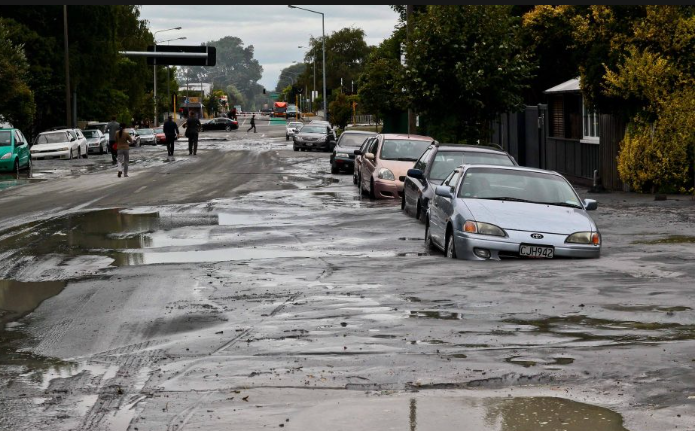Soil liquefaction is a process in which, during an earthquake or application of dynamic load to the loose, saturated, and cohesionless soil, it loses its all shear strength under the action of vibration caused due to earthquake or any other reason.
Causes of Soil Liquefaction
- Soil must be cohesionless: If soil is cohesive then there will be some shear strength possessed by soil, which prevents liquefaction.
- Soil must be loose, as compacted or dense soil does not exhibit liquefaction.
- Soil must be under dynamic stress. : If stress is static, pore water pressure may get enough time to dissipate.
- Soil must be in undrained condition.
Read Also – Geotechnical Engineering Interview Questions
Effects of Soil Liquefaction
- Structure may be sunk into the soil, or say an excessive settlement of the structure may be observed.
- In some cases, differential settlement may happen.
- Foundation, during earthquake, may experience differential settlement.
Mitigation of Soil Liquefaction
- Overburden pressure could be applied over the soil.
- If possible, soil should be replaced by other cohesive soil.
- Stone column should be placed.
- Proper drainage should be provided.
- Addition of cohesive material could help to mitigate the effect of soil liquefaction.
Read Also-
Types of Foundations used in construction
Types of Pile Foundations in Construction
